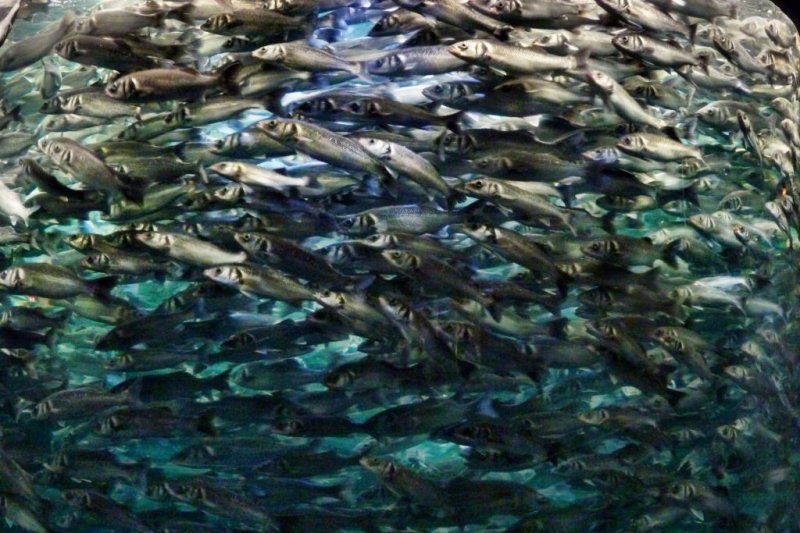Atlantic herring are one of many species that have altered their distribution and abundance in response to warming ocean temperatures. Photo by
PublicDomainPictures.net
March 26 (UPI) -- The distribution and abundance of hundreds of marine species, including mammals, plankton, fish, plants and seabirds, has changed significantly during the past century in response to rising ocean temperatures, a new survey shows.
For the study, published this week in the journal Current Biology, scientists mined some 540 records of changes in species abundance.
"We drew together an extensive collection of survey records that reported how species abundances have changed over the last century, as the world's oceans warmed by over 1 degree Celsius," study author Martin Genner, professor of evolutionary ecology at the University of Bristol in Britain, said in a news release. "We then identified the location of each study in relation to the full global distribution of the species and asked if abundance changes depended on where a species was studied."
After combing through data on the numbers and movements of more than 300 marine species over the last 100 years, researchers identified several patterns. On the cool edge of species ranges, marine plants and animals are doing well. As water warms, these species can take advantage of new habitat. Conversely, species in warmer areas are struggling as water temperatures become too hot to tolerate.
"Marine species distributions are limited by cold temperatures towards the poles and high temperatures towards the equator," said study author Louise Rutterford, researcher at both the universities of Exeter and Bristol. "We predicted that warming seas would lead each species to increase in abundance at the pole-ward side of its range, as the warmer climate made the habitat more agreeable. We also predicted that each species would decline in abundance at the equator-ward side of its range, as temperatures become too warm to survive."
The new research showed species like Atlantic herring and Adélie penguins are declining in number along the warmer edges of their ranges. Meanwhile, the species' numbers are growing along the cooler edges of their ranges.
Species that are abundant along the pole-ward side of their ranges are generally benefiting from climate change, researchers found. Unfortunately, many species aren't able to cope with the dramatic changes in ocean temperature.
"Some marine life suffers as it is not able to adapt fast enough to survive warming, and this is most noticeable in populations nearer the equator," Rutterford said. "This is concerning as both increasing and decreasing abundances may have harmful knock-on effects for the wider ecosystem."
While some species are thriving as a result of warming ocean waters, scientists expect climate change to continue to disrupt marine ecosystems and diminish marine biodiversity in the long run.
"The findings point toward a future in which we will also see continued loss of marine life," Genner said.















